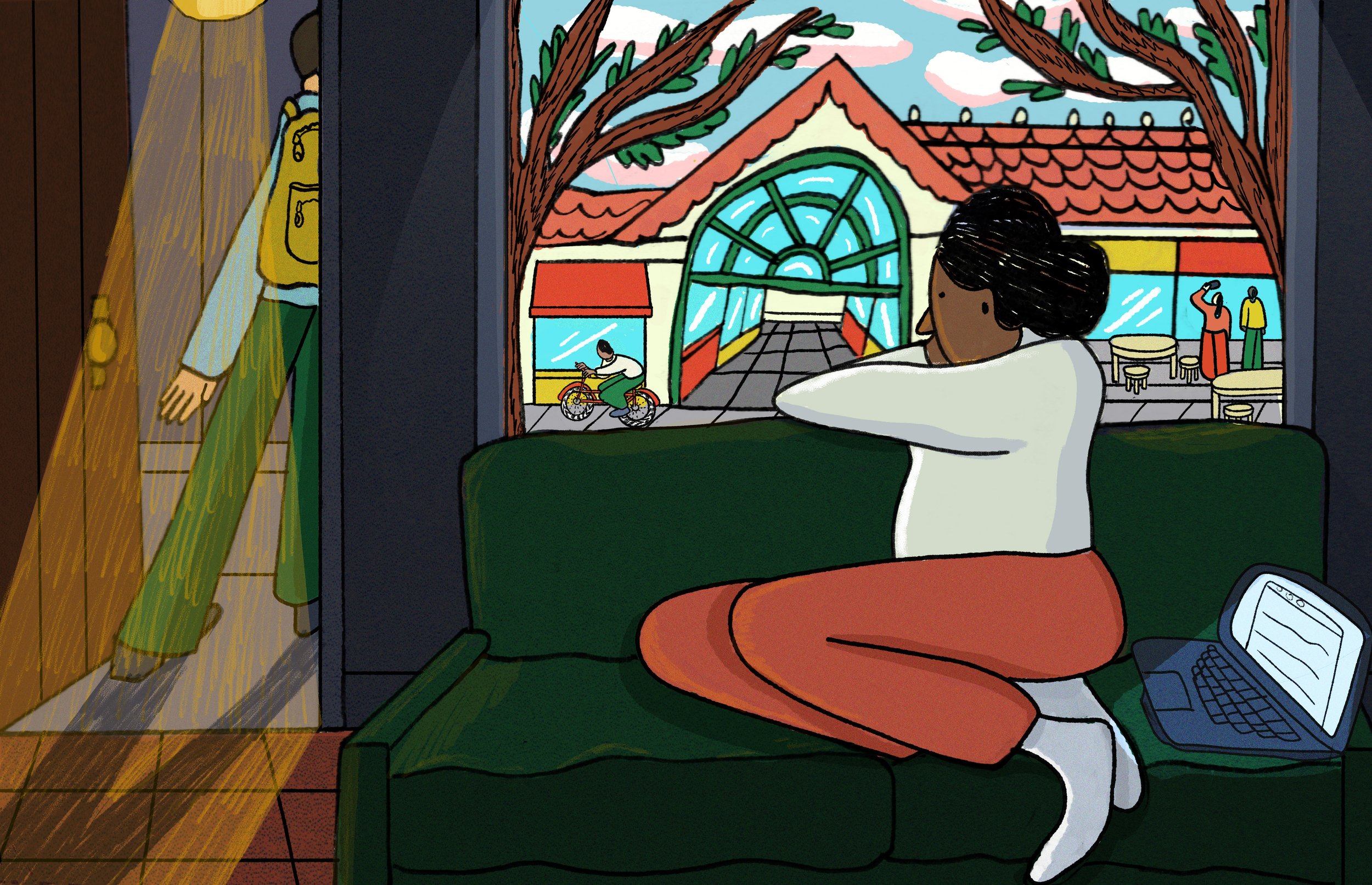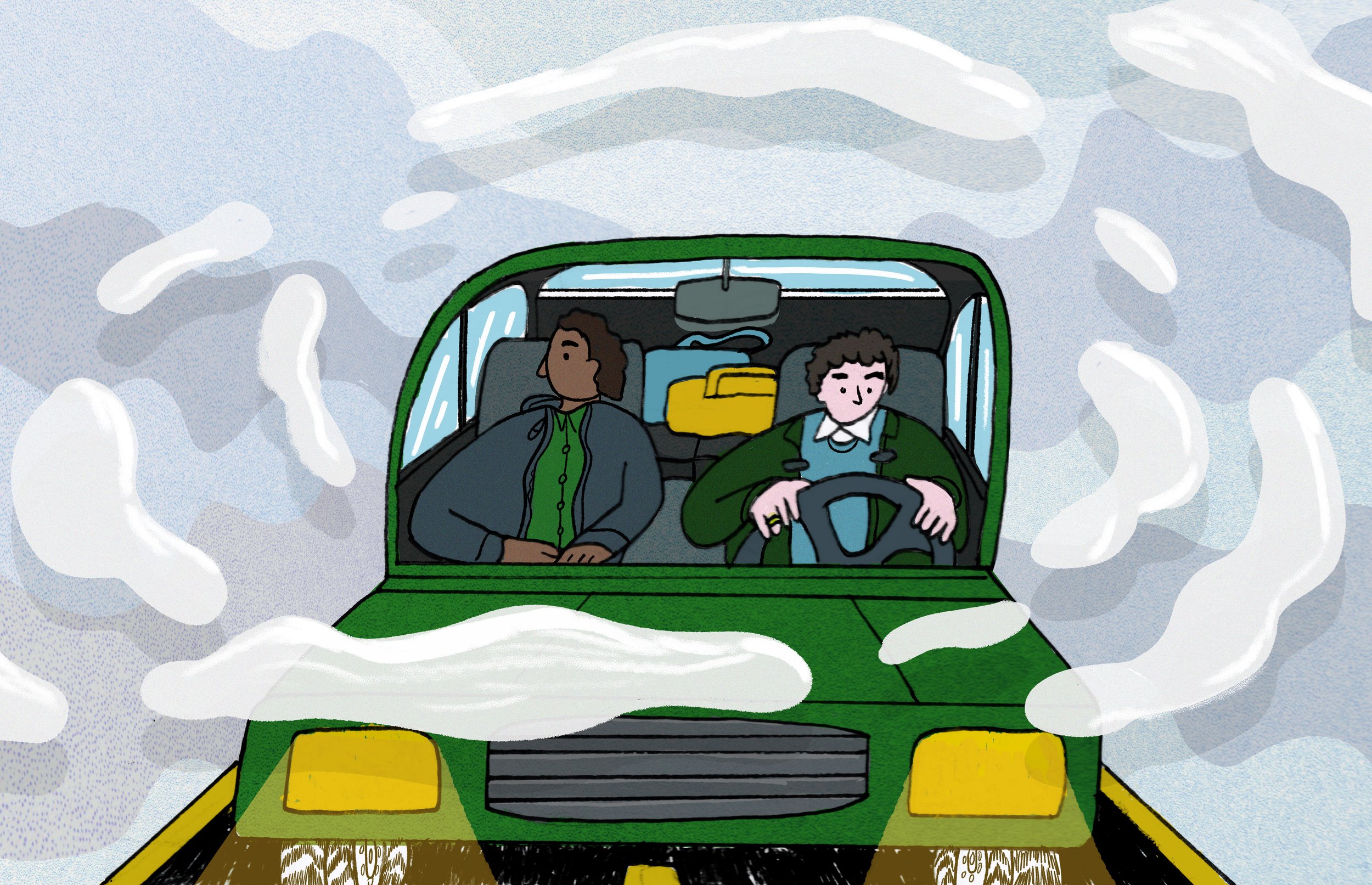6 a.m. on Mount Kilimanjaro

6 a.m. on Mount Kilimanjaro is dry, mirthless cold, the tromp of boots on scree, and unraveling hallucinations.
My three-person trekking group began our push to the summit at midnight, trudging through black hours and howling wind. With the sleep debt and accumulated exhaustion from days of hiking, I’m not sure what’s real anymore. I have to do this trek, however. I’m climbing Kilimanjaro because my dad is dying of cancer and I want to give him one last reason to be proud. When he leaves this earth, he can do so knowing that his daughter is strong, capable.
I’ve hiked through the night before elsewhere. On the Inca Trail to Machu Picchu, the headlamps of the hikers ahead of me draped around the mountain like a string of fairy lights. But on Kilimanjaro, the lamps seem to wink from the heavens. I can’t fathom why they are above me, and this must be an act of self-preservation—in the moment, my mind can’t process the dramatic incline. They simply dangle like a treat I can’t claim.
For a long time, there’s another hiker pressing behind me, practically clawing at my right elbow. Their presence feels like a challenge to move faster, but I can’t outhike them. Frustrated, I slow down to let them pass, and they slow, too. At some point it occurs to me that the figure I can’t shake is my own shadow, a side effect of the ripe, nearly full moon. Another time I see a staircase and grasp for the handrail, but this, too, is a lie.
The air is thin, the altitude high. I take tiny, gasping gulps to breathe. When I was a kid, I had a goldfish who launched himself out of the bowl; on the floor, out of his element, his mouth throbbed, “Oh! Oh! Oh!” Likewise, this is not my element. I’d throw myself to the ground, but I don’t have enough confidence that someone would pick me up.
I can’t tell if I’m consciously crying or if my eyes are leaking. Either way, the tears have frozen in streaks along the edges of my face. The water in my bag has also frozen. When I suck on my hydration pack, the straw crunches like a snowcone machine kicking into gear. My tongue feels as old and parched as a Dead Sea Scroll. I wonder aloud if my feet are bleeding, but we do not stop moving.
The summit is called Uhuru, a Swahili word that means freedom, and it’s marked by a modest wooden sign. But I imagine reaching a gift shop at the top, where the cozy glow of the store will rescue me from the night, and my heart will slow to a normal rate. I want to buy a cup of steaming hot cocoa from the jolly proprietor, who will make change and small talk. “Cold enough for you?” he’ll say. I imagine sipping the warm beverage. It’ll heat my insides and defrost my tears.
Rationally, I know there is no gift shop. There’s certainly no cocoa, hot or otherwise. But my mind is long past rational.
My reward instead is a quick rest at Stella Point, still an hour from the peak, just as light blooms. On the rooftop of Africa, the shivering dawn is interlaced with gratitude and pain, the sky screaming purple. It’s a shade I’ve never seen before and likely never will again. Taking one shaky step after another, I move forward; it’s the only thing I can do.
About the Author
Maggie Downs is the author of the memoir Braver Than You Think and a forthcoming guide to family activities, 50 Things To Do Before You're Five. With a focus on outdoor adventure and meaningful travel experiences, her work has appeared in the New York Times, Afar, Travel + Leisure, Outside, and other publications. She lives in the California desert with her family and a cat named Coleslaw. You can find her at maggiedowns.com.
Illustration by Jane Demarest.
Edited by Aube Rey Lescure.











